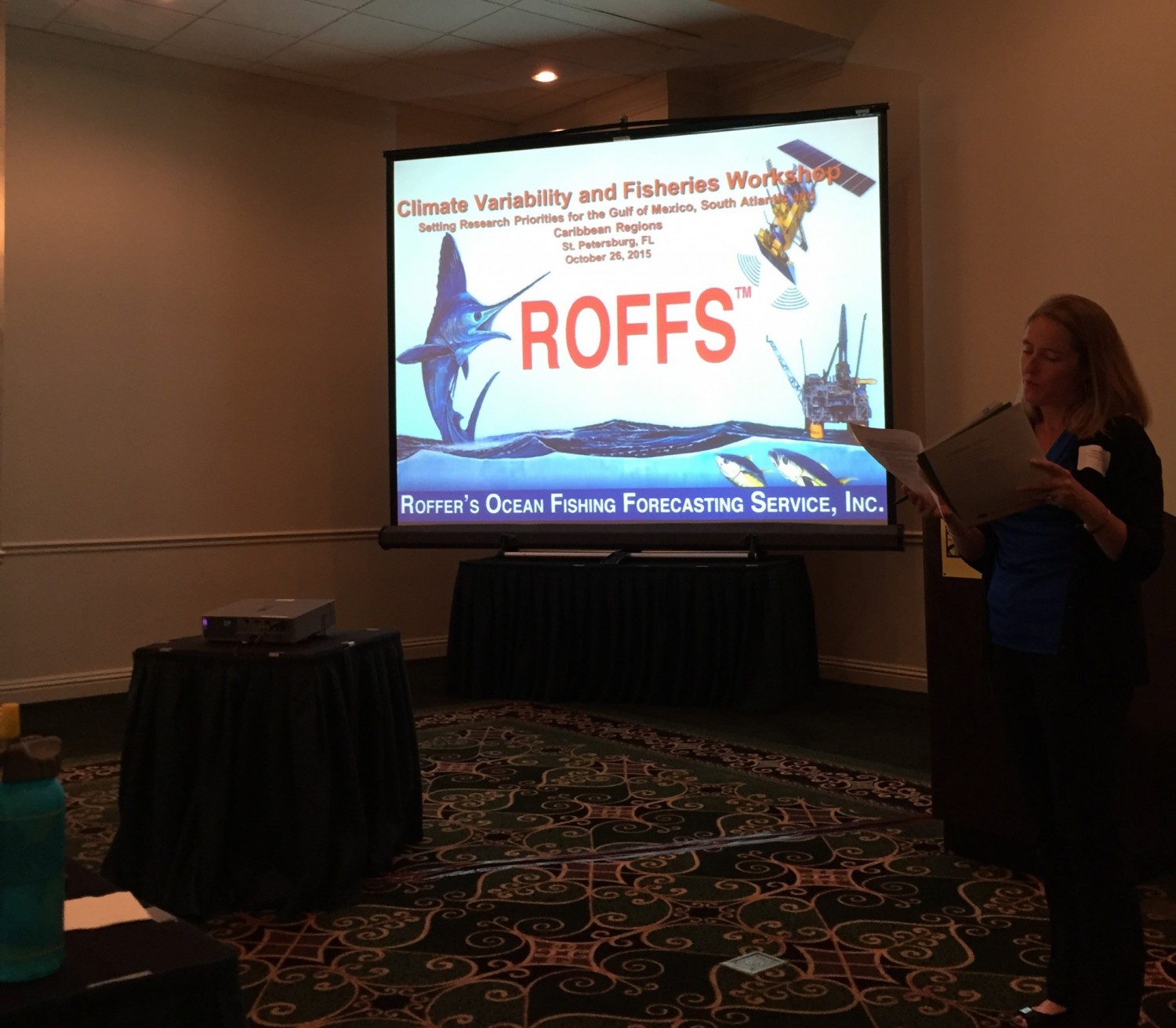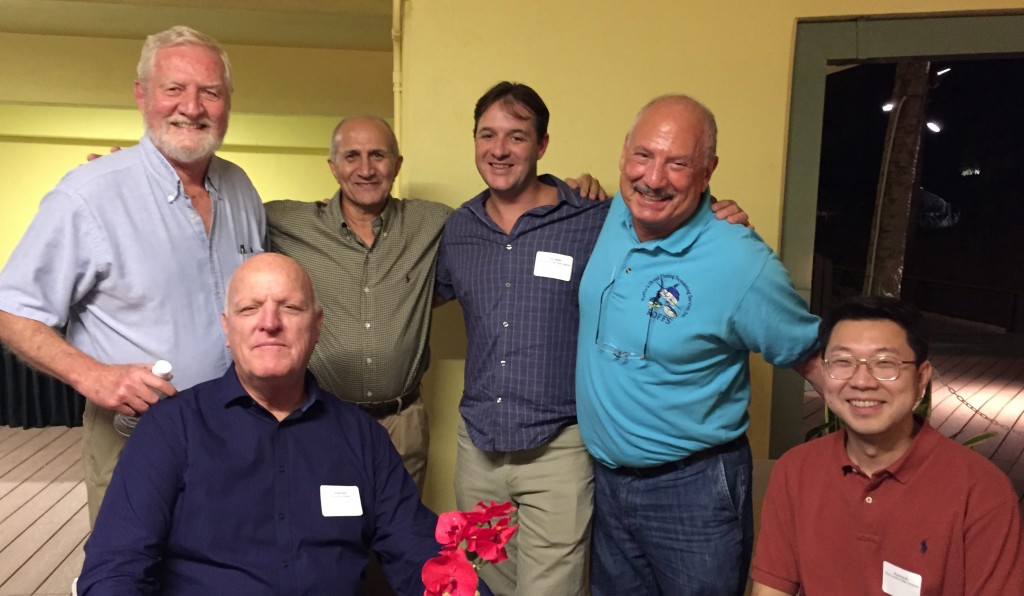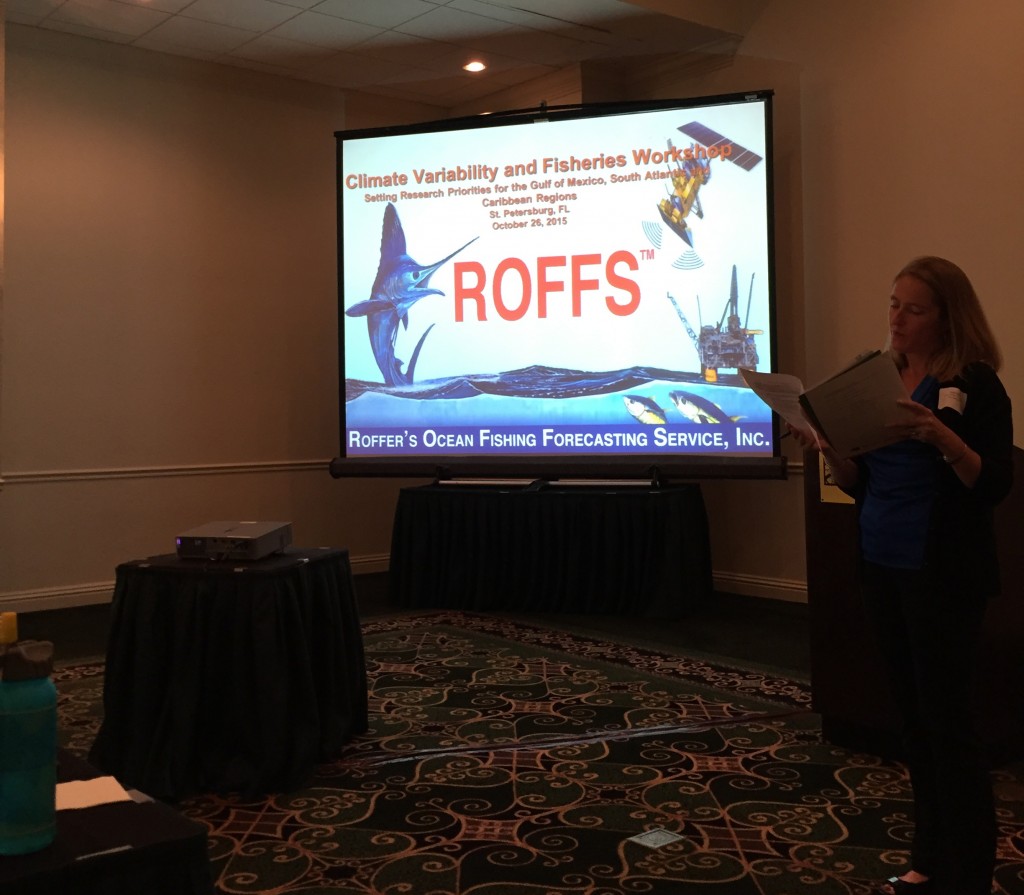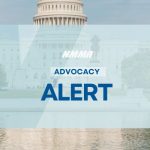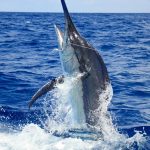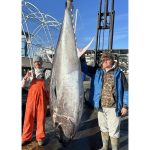Dear Editor:
This note is to inform you that Roffer’s Ocean Fishing Forecasting Service, Inc. partnered with SECOORA, NOAA NMFS, NASA and GCOOS and held an important workshop entitled “Climate Variability and Fisheries Workshop: Setting Science Priorities for the Gulf of Mexico, South Atlantic, and Caribbean Region.” This workshop was held on St. Petersburg Beach, FL October 26-28, 2015 and approximately 55 people participated from government (federal and state), academia (public and private) and private industry (for profit and not for profit). While most of the participants were from the South Atlantic, Gulf of Mexico and Caribbean regions, there were others from the northeast and middle Atlantic regions as well. These participants formed a group of experts from fishery management councils, federal and state fisheries and climate entities, academia and private industry scientists along with fishing industries representatives, and non-governmental organizations.
The goal of the workshop was to advance our understanding of impacts of climate variability on fisheries resources and management in the large marine ecosystems of the Gulf of Mexico, South Atlantic and Caribbean Sea, and to promote multidisciplinary partnerships. Breakout sessions were held to identify research priorities and common needs across regions and disciplines. The workshop deliverables include a prioritized list of the most important research and monitoring needs across the three regions and for each individual region along with additional documents on the state-of-the-science regarding climate variability and its potential impact on fisheries resources and management, and priority research and monitoring/observing needs.
Some of the information presented and discussed at the meeting has already been used by NOAA NMFS when considering Fisheries Climate Science Strategy Regional Action Plan. In addition, the information is expected to be used at the upcoming South Atlantic Fishery Management Council’s staff discussions on enhancing the Ecosystem Based Fisheries Management Plan. We are sure that the final documents will be valued documents for many people over a broad geographic range.
Essentially the workshop objectives were to:
- Share the state-of-the-science and examples of apparent climate change and its potential impact on fisheries resources (including protected resources such as marine mammals, turtles, and corals) in each region.
- Discuss how climate variability may impact fish distribution, catch, socioeconomics, and management.
- Identify and prioritize research and monitoring needs related to climate variability and fisheries for each region.
- Consider needs common to all regions, and discuss strategies for applied, collaborative research across geographies and disciplines.
- Learn from others working on the links between fisheries and climate in other regions.
- Identify opportunities for addressing priority needs
For more details see: http://secoora.org/fishclimateworkshop which includes links to the Agenda and other important items including the NOAA Fisheries Climate Science Strategy and a comprehensive literature review on fish species climate vulnerabilities by Candice Hall and Mitchell A. Roffer.
Safe and Successful Fishing,
Mitchell A. Roffer, Ph.D. President of ROFFS™
Above: Images from ROFFS™ Climate Variability and Fisheries Workshop | Courtesy: ROFFS™

